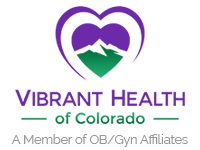Happy Heart Month! Literally. When it comes to hearts, February isn’t only about Valentine’s Day, it’s also American Heart Month and Go Red for Women. There is no better time than right now to take a few minutes to get familiar with risk factors, prevention, and warning signs so we can keep that amazing, beautiful life source vibrant and healthy! As the saying goes, an ounce of prevention is worth a pound of cure, and when it comes to heart health, nothing could be more true. Schedule your health consultation today.
According to the CDC, heart disease is still the leading cause of death among men and women accounting for about 655,000 deaths annually, that’s 1 in every 4 deaths.1 With increasing rates of high blood pressure and obesity there is also an alarming trend of adults ages 35-64, developing heart disease much earlier.2 Over 18 million adults in the U.S. over the age of 20 already have coronary artery disease.3 We know these numbers are alarming but you can take control.
The American Heart Association has identified seven major risk factors as key indicators of potential heart problems. Understanding these risk factors and getting your numbers checked is the first step to insuring your heart health. The important thing to note about all of these risk factors is the potential to manage all of them with lifestyle choices versus medications. Simple blood tests to get your cholesterol and blood sugar numbers and getting your blood pressure checked will provide some of the essential information you need to assess your heart health and make any necessary lifestyle adjustments for optimum health and fitness.
American Heart Association’s Life’s Simple 7® Risk Factors:
- Blood Pressure
- Cholesterol
- Blood Sugar
- Activity Level
- Diet
- Weight
- Smoking
Life’s Simple 7® Prevention Measures:
- Get Active
A little a day goes a long way! Get 150 minutes of moderate exercise or 75 minutes of vigorous exercise throughout the week. - Eat Better
Eat the rainbow! Enjoy a balanced diet full of lots of fruits and vegetables, low-fat dairy, fish and poultry. Be sure to limit sugary, processed foods, high fat items and excess salt. - Lose Weight
Maintaining a healthy weight is important for your heart and your overall health! Shedding extra pounds isn’t always as easy as eating less and exercising more. Lots of factors can impact our ability to burn calories efficiently. If you are struggling with weight management, we can help identify factors that may be affecting your success. You may be a good candidate for Shape ReClaimed®, our practitioner-guided transformation program. - Control Cholesterol
Eating a healthy diet and increasing your activity helps lower your cholesterol. - Manage Blood Pressure
Poor diet and stress are both linked to high blood pressure. Eating healthy and reducing or managing stress can help lower blood pressure. Exercise and activities such as yoga and meditation are particularly helpful in reducing stress. In a recent article published by the Harvard Medical School, people who meditated had a lower prevalence of not only stress but multiple risk factors including high cholesterol, diabetes, high blood pressure, stroke, and coronary artery disease.4 - Reduce Blood Sugar
Our bodies convert food into glucose (blood sugar) which it uses for energy. So we need some sugar but too much excess sugar over time can damage your heart, lead to other diseases such as diabetes, and damage your kidneys, eyes, and nerves. - Quit Smoking
Stop now! Smoking damages your lungs, circulatory system, and significantly contributes to heart disease as well as a host of other diseases. The sooner you stop, the sooner your lungs can begin to heal.
Heart Attack and Stroke Warning Signs:
If you or someone you love is experiencing these symptoms, call 9-1-1.
- Heart Attack
- Chest discomfort
- Discomfort in other areas of upper body including arms, back, neck, jaw, and stomach
- Shortness of breath
- Other signs such as nausea, cold sweat, or lightheadedness
- Note: the most common sign of heart attack for both men and women is chest pain. However, women are more likely to experience other common symptoms, particularly shortness of breath, nausea/vomiting and back or jaw pain.
- Stroke (Spot it F.A.S.T)
- Face drooping – does one side of the face droop or is it numb? Ask them to smile.
- Arm Weakness – is one arm weak or numb. Ask them to lift both arms and see if one moves downwards.
- Speech – Is speech slurred?
- Time to call 9-1-1 even if the symptoms subside, call 911 and get them to hospital.
- Note: the most common sign of heart attack for both men and women is chest pain. However, women are more likely to experience other common symptoms, particularly shortness of breath, nausea/vomiting and back or jaw pain.
A little must see…. As noted above women are more likely to have other signs of a heart attack AND more likely to ignore the signs. We love this video produced by Elizabeth Banks and think its a must-see for every woman.
Curious about how your heart stacks up? The American Heart Association has a free online tool, My Life Check, to assess and track your heart health. Before you use the online tool, you’ll need to know your blood pressure, blood sugar and cholesterol numbers to get started. Have questions or concerns about your heart health, call us today.
Resources
- “Heart Disease Facts.” Centers for Disease Control and Prevention, Centers for Disease Control and Prevention, 8 Sept. 2020, www.cdc.gov/heartdisease/facts.htm.
- “Heart Disease: It Can Happen at Any Age.” Centers for Disease Control and Prevention, Centers for Disease Control and Prevention, 26 Jan. 2021, www.cdc.gov/heartdisease/any_age.htm.
- “Heart Disease Facts.” Centers for Disease Control and Prevention, Centers for Disease Control and Prevention, 8 Sept. 2020, www.cdc.gov/heartdisease/facts.htm.
- Publishing, Harvard Health. “Can Meditation Help Your Heart?” Harvard Health, www.health.harvard.edu/heart-health/can-meditation-help-your-heart.




